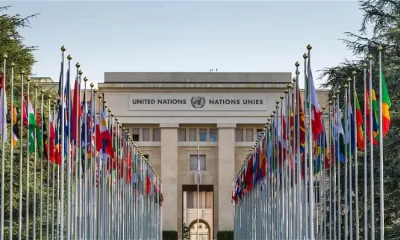Legal Issues
Delays in Nigeria’s Justice Delivery: A National Concern -By Tochukwu Jimo Obi
Justice delayed is justice denied. For Nigeria to regain confidence in its justice system, deliberate steps must be taken to eliminate needless delays, strengthen institutional independence, and restore public trust. Anything less will continue to undermine democracy and deny citizens their fundamental right to timely justice.

The Nigerian justice system, once regarded as the last hope of the common man, has sadly become synonymous with unnecessary delays, technicalities, and prolonged litigations. This development is both worrisome and unfortunate, especially in a country where the rule of law ought to serve as the bedrock of democracy.
Across various courts, cases linger for years sometimes decades suffering from prolonged adjournments, deliberate delay tactics by lawyers, and in some instances, laxity on the part of prosecutors and security agencies. These practices erode public confidence and frustrate genuine seekers of justice.
Despite the much-celebrated judicial independence, the reality on the ground tells a different story. Interference from other arms of government has left the judiciary struggling to live up to its constitutional mandate. Matters requiring urgent determination still gather dust in the courts. Some have yet to be assigned to judges, while others crawl along at a snail’s pace.
A striking example is the suit filed by the PDP Governors’ Forum challenging the declaration of a state of emergency, which has remained unattended at the Supreme Court. Equally disturbing is the trial of the leader of the Indigenous People of Biafra (IPOB), Nnamdi Kanu, a case that ought to have been concluded long ago but continues to drag on. Cases involving past governors and public officials accused of corruption also remain unresolved for years, raising questions about the seriousness of our justice delivery system.
The contrast with other jurisdictions is glaring. The recent trial and conviction of Simon Ekpa in Finland, which lasted just a few weeks, is an eye-opener. It underscores how efficiency and modern practices can make justice swift and credible.
If Nigeria must reposition its judiciary, urgent reforms are imperative. The system should embrace Artificial Intelligence and modern technology to fast-track proceedings. Virtual hearings should be mainstreamed, and no case should exceed 60–90 days in any court. The Supreme Court should be decentralised, with at least six divisions established across the country’s geopolitical zones to ease congestion. Furthermore, many matters that now reach the apex court should reasonably end at the Court of Appeal.
The National Judicial Council (NJC) also requires restructuring. It should be expanded to include more retired justices and be headed by a retired Chief Justice of Nigeria, rather than the serving CJN, to guarantee neutrality and focused oversight.
Justice delayed is justice denied. For Nigeria to regain confidence in its justice system, deliberate steps must be taken to eliminate needless delays, strengthen institutional independence, and restore public trust. Anything less will continue to undermine democracy and deny citizens their fundamental right to timely justice.










